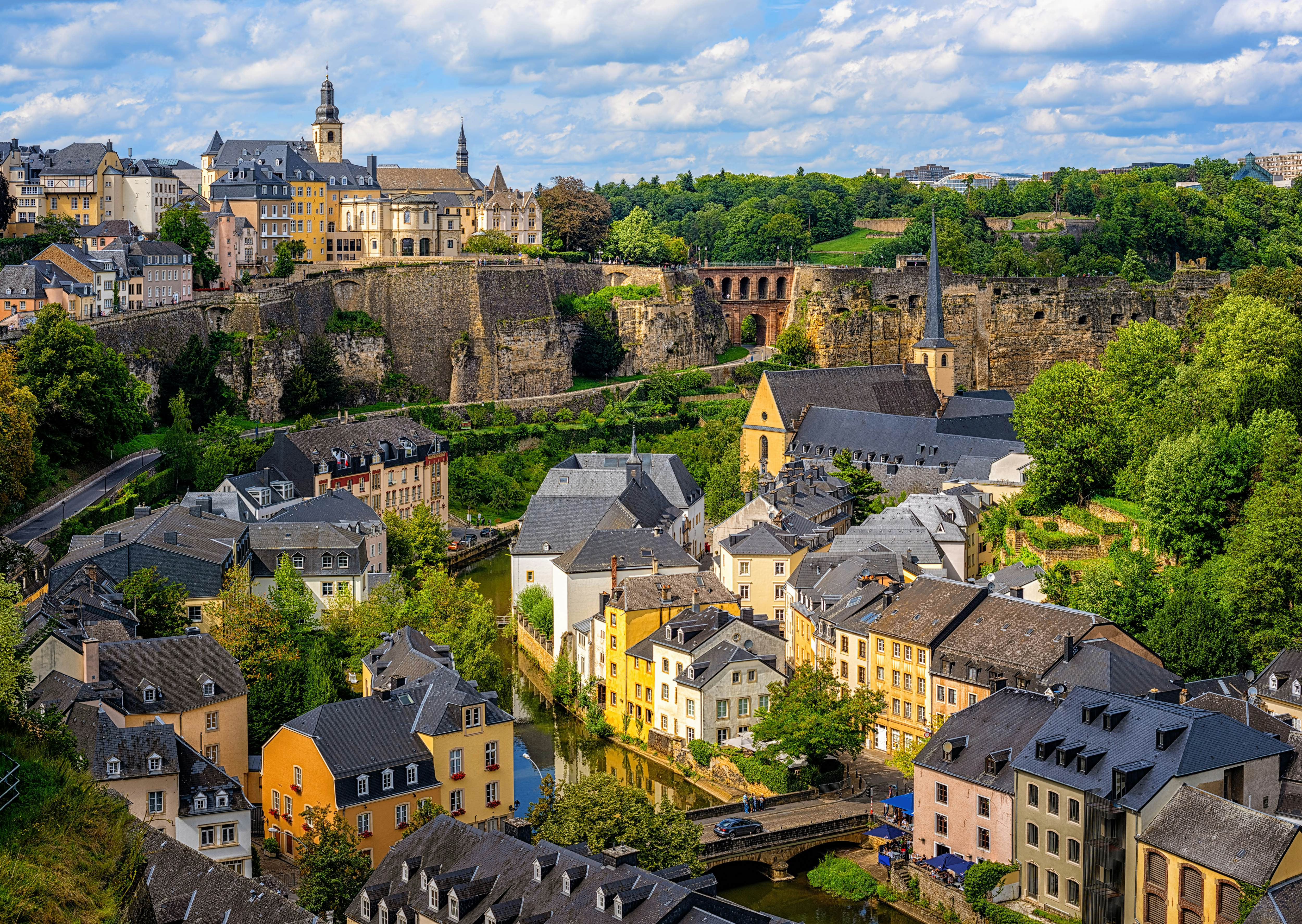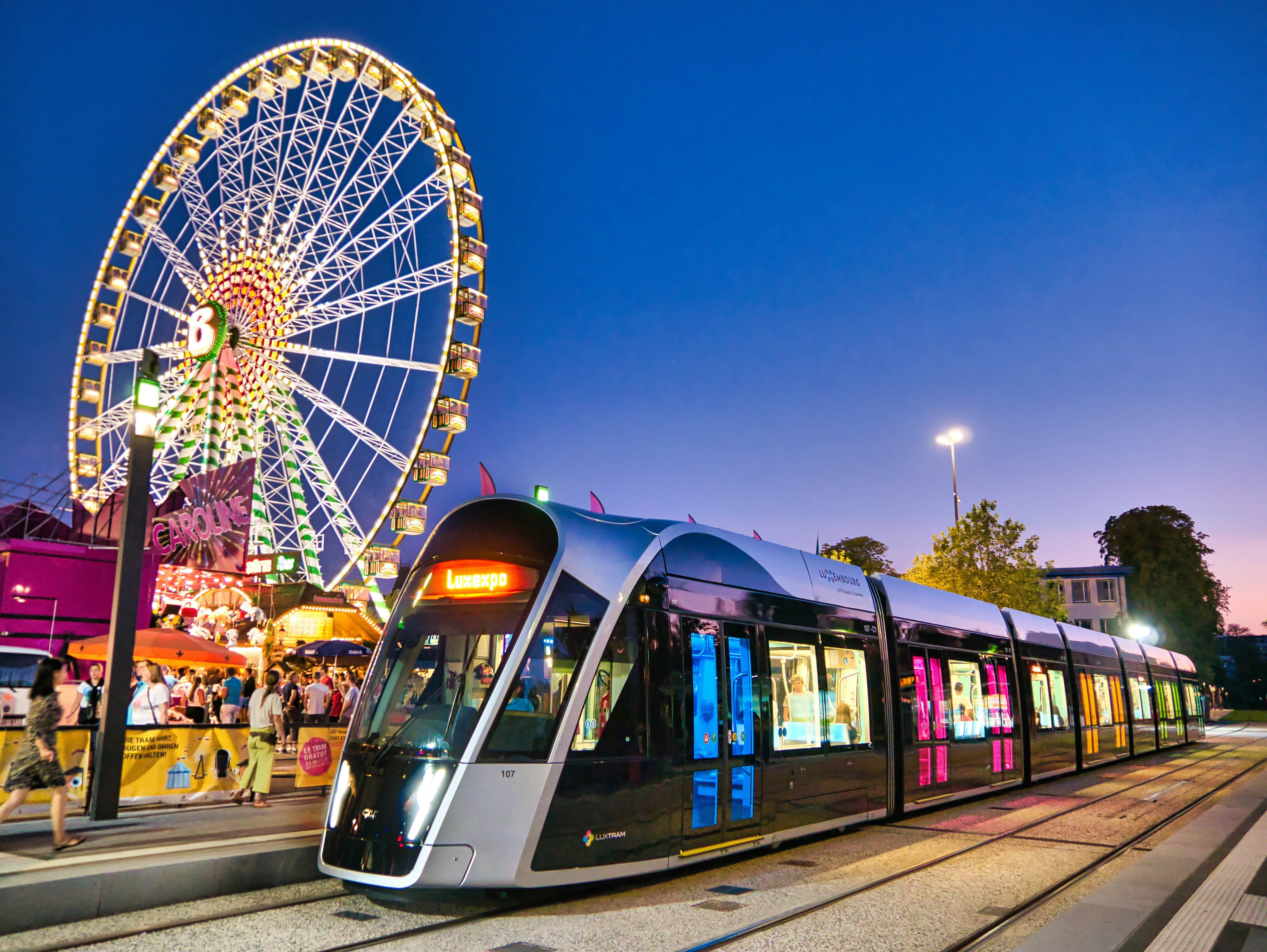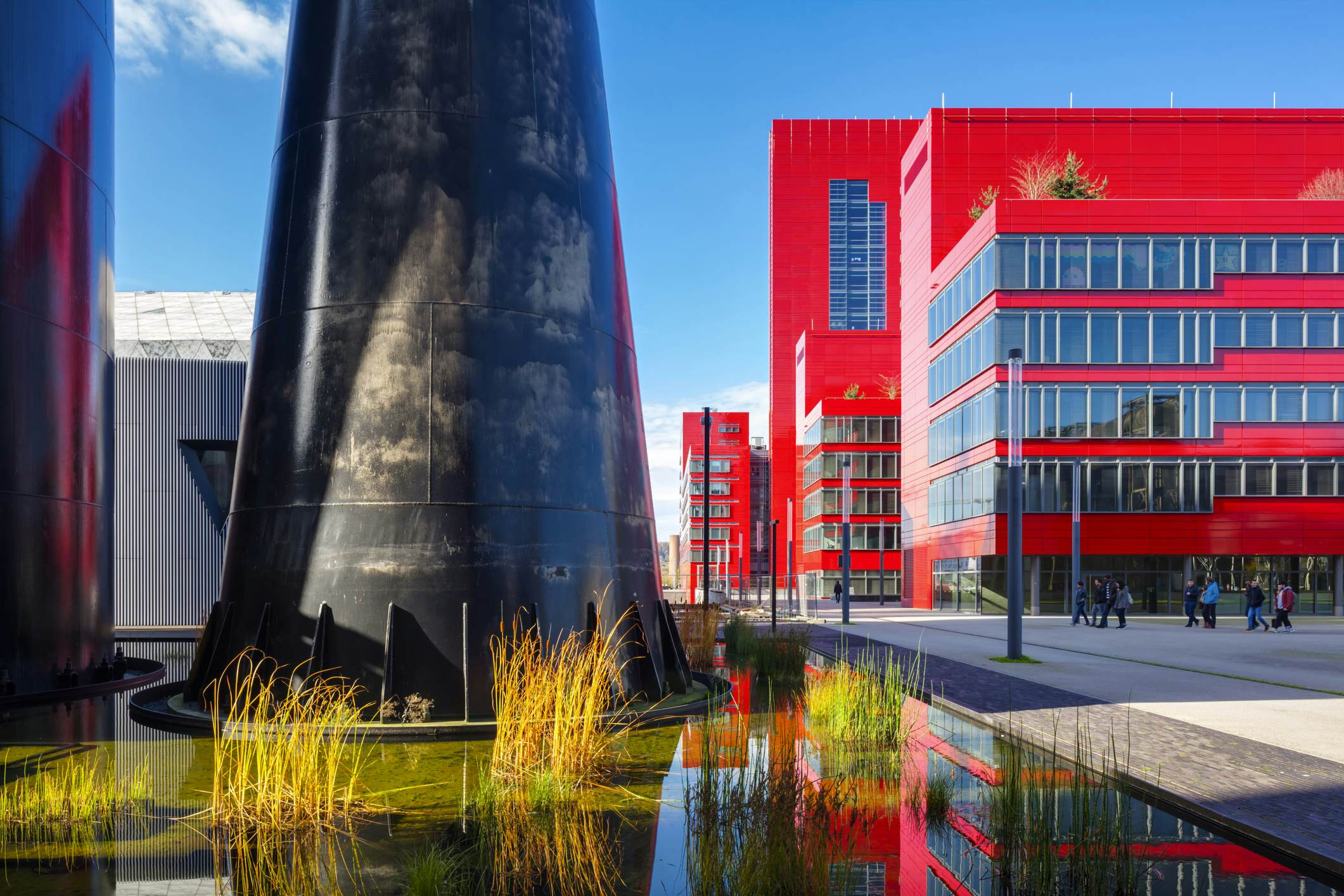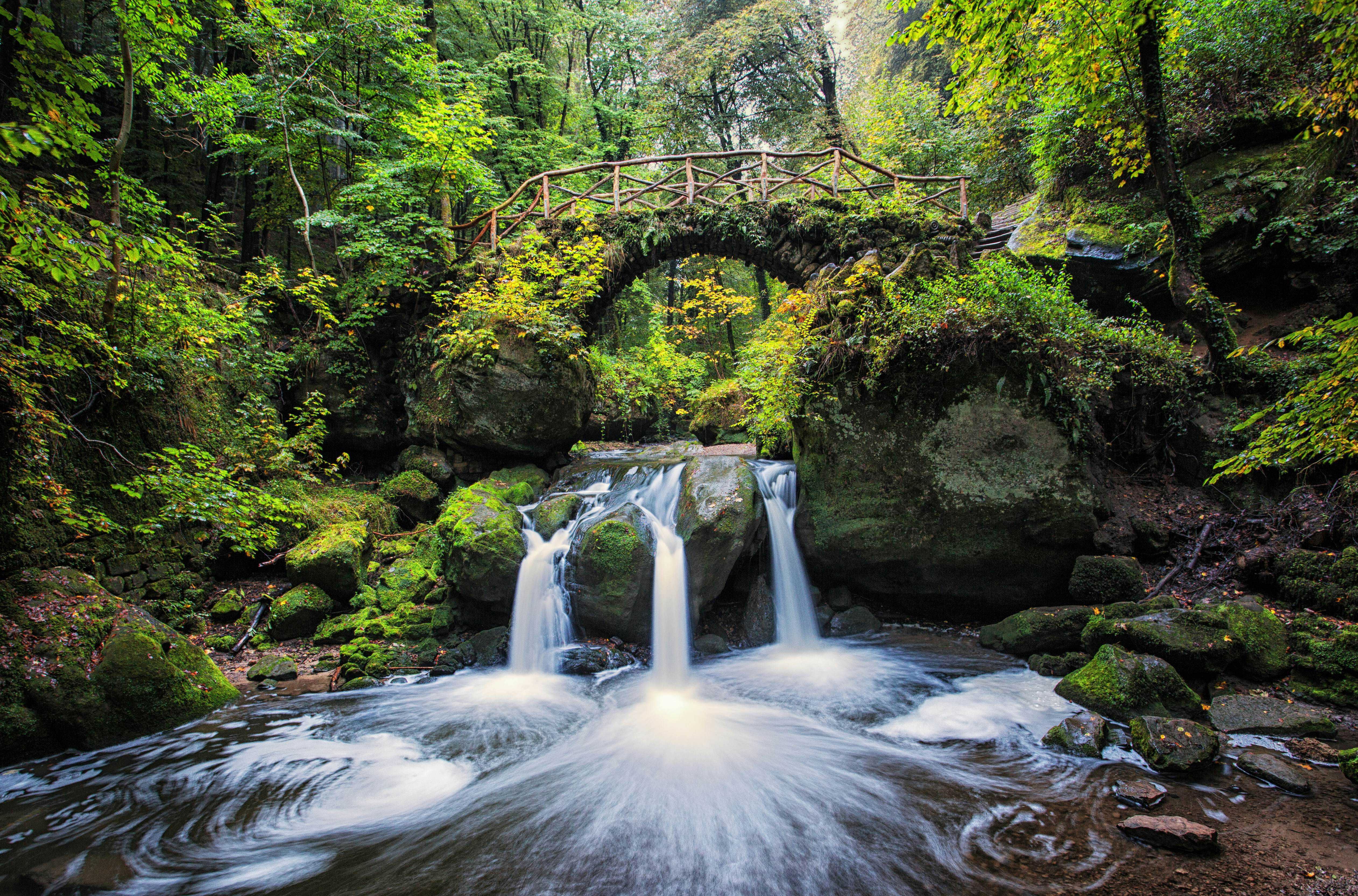Tourism In Luxembourg offers a unique blend of rich history, stunning landscapes, and cultural experiences. Let SIXT.VN be your guide to discover the hidden gems of this European jewel. From charming medieval towns to scenic wine regions, Luxembourg promises an unforgettable adventure. Explore Luxembourg’s beauty with ease and comfort.
1. What is Unique About Tourism in Luxembourg?
Tourism in Luxembourg stands out because it provides a concentrated dose of European history, culture, and natural beauty within a small, accessible area. Unlike larger countries where travel between attractions can be time-consuming, Luxembourg allows visitors to experience a diverse range of sights and activities within a short period.
- Rich History: Luxembourg City’s Old Town, a UNESCO World Heritage site, showcases the country’s strategic importance throughout history. The Bock Casemates, a network of underground tunnels, are a testament to its past as a formidable fortress.
- Cultural Fusion: Situated between France, Germany, and Belgium, Luxembourg has absorbed influences from all three, creating a unique cultural blend evident in its cuisine, languages, and traditions.
- Natural Beauty: The Mullerthal region, often called “Little Switzerland,” offers lush forests, dramatic rock formations, and scenic hiking trails. The Moselle Valley is renowned for its vineyards and wine production.
According to research from UNESCO, historical sites like Luxembourg City’s Old Town contribute significantly to the country’s tourism appeal by showcasing its unique heritage.
 Luxembourg city, view of the Old Town and Grund
Luxembourg city, view of the Old Town and Grund
Alt Text: Panoramic view of Luxembourg City’s Old Town and Grund, showcasing historical architecture and scenic valley.
2. When is the Best Time to Visit Luxembourg for Tourism?
The best time for tourism in Luxembourg is during the summer (June to August) and fall (September to November) months. Summer offers pleasant weather ideal for outdoor activities, while fall brings stunning foliage and fewer crowds.
- Summer (June to August): The weather is warm and sunny, perfect for hiking in the Mullerthal region, exploring vineyards in the Moselle Valley, and enjoying outdoor festivals. The average temperature ranges from 17°C to 25°C (63°F to 77°F).
- Fall (September to November): The landscapes transform with vibrant autumn colors, making it an excellent time for scenic drives and walks. Hotel prices are also slightly lower during this period. The average temperature ranges from 8°C to 16°C (46°F to 61°F).
- Winter (December to February): The Winterlights festival in Luxembourg City is magical, but temperatures are near-freezing, and some attractions may have reduced hours or closures. The average temperature ranges from 0°C to 5°C (32°F to 41°F).
- Spring (March to May): The weather is mild, and the landscapes begin to bloom. While it can be unpredictable, spring offers a quieter time to visit with fewer tourists. The average temperature ranges from 5°C to 15°C (41°F to 59°F).
SIXT.VN recommends planning your visit based on your preferred activities and weather conditions. Summer is perfect for outdoor adventures, while fall offers scenic beauty and fewer crowds.
3. How Many Days are Ideal for Tourism in Luxembourg?
An ideal duration for tourism in Luxembourg is between three to seven days, depending on your interests and how much you want to explore. A weekend break is sufficient for Luxembourg City, but longer trips allow for exploring the surrounding regions.
- Weekend Break (3 Days): Perfect for exploring Luxembourg City, including the Old Town, Bock Casemates, and Musée d’Histoire de la Ville de Luxembourg. You can also enjoy the local cuisine and nightlife.
- Four Days: Allows you to visit the Moselle Valley wine region and explore the industrial heritage in Esch, the 2022 European Capital of Culture.
- Seven Days: Provides ample time to hike in the Mullerthal region, visit Echternach, and explore other charming towns and villages throughout the country.
SIXT.VN can help you customize your itinerary to make the most of your time in Luxembourg, whether you’re interested in history, nature, or culture.
4. What are the Best Ways to Get Around Luxembourg for Tourists?
The best ways to get around Luxembourg for tourists include utilizing the country’s free public transportation system, renting a car for flexibility, or using taxis and ride-sharing services for convenience.
- Free Public Transportation: Since February 2020, all public transit in Luxembourg, including buses, trams, and trains, is free of charge. This makes it incredibly easy and cost-effective to explore the country.
- Rental Car: Renting a car provides the flexibility to explore more remote areas, such as the Mullerthal region or the Moselle Valley, at your own pace. SIXT.VN offers convenient car rental services to suit your needs.
- Taxis and Ride-Sharing: Taxis and ride-sharing services are available in Luxembourg City and other urban areas. They provide a convenient option for short trips or when public transportation is not readily available.
- Walking: Luxembourg City is compact and easily walkable, especially the Old Town. Walking allows you to fully appreciate the city’s architecture and atmosphere.
According to the Luxembourg Ministry of Mobility and Public Works, the free public transportation initiative has significantly increased the use of public transit and reduced traffic congestion.
 View on Schueberfouer – annual traditional fair of Luxembourg and a tram passing nearby;
View on Schueberfouer – annual traditional fair of Luxembourg and a tram passing nearby;
Alt Text: Modern tram passing by the Schueberfouer fair in Luxembourg, highlighting the country’s free public transportation system.
5. What are the Top Attractions for Tourism in Luxembourg?
The top attractions for tourism in Luxembourg include Luxembourg City’s Old Town, the Bock Casemates, the Mullerthal region, the Moselle Valley, and the industrial heritage sites in Esch.
-
Luxembourg City’s Old Town: A UNESCO World Heritage site, the Old Town features historic architecture, charming streets, and stunning views.
- Gëlle Fra (Golden Lady): A war memorial symbolizing freedom and resistance.
- Grand Ducal Palace: The official residence of the Grand Duke of Luxembourg.
- Neumünster Abbey: A cultural center hosting concerts, exhibitions, and events.
-
Bock Casemates: A network of underground tunnels and fortifications offering a glimpse into Luxembourg’s military history.
- Historical Significance: Played a crucial role in defending the city over centuries.
- Panoramic Views: Offers stunning views of the city from various vantage points.
-
Mullerthal Region (Little Switzerland): Known for its lush forests, dramatic rock formations, and scenic hiking trails.
- Mullerthal Trail: A 112km hiking trail passing through stunning landscapes.
- Schiessentümpel Waterfall: A picturesque waterfall with charming wooden bridges.
-
Moselle Valley: A wine region known for its vineyards and production of white wines such as Riesling and Gewürztraminer.
- Wine Tasting Tours: Opportunities to sample local wines and learn about the winemaking process.
- Scenic Drives: Picturesque routes through the vineyards and charming villages.
-
Esch-sur-Alzette: The 2022 European Capital of Culture, featuring industrial heritage sites and modern cultural attractions.
- Belval Blast Furnaces: Former blast furnaces that can be climbed for panoramic views.
- Minett Park Fond-de-Gras: An old mining railroad transformed into walking trails.
SIXT.VN can arrange guided tours and transportation to these top attractions, ensuring a memorable experience.
6. What Unique Cultural Experiences Can Tourists Enjoy in Luxembourg?
Tourists in Luxembourg can enjoy unique cultural experiences such as attending local festivals, exploring historical traditions, and sampling the country’s distinctive cuisine.
-
Local Festivals: Luxembourg hosts numerous festivals throughout the year, celebrating everything from music and art to food and wine.
- Schueberfouer: An annual funfair in Luxembourg City, dating back to the Middle Ages.
- Wine Festivals: Celebrations in the Moselle Valley showcasing local wines and cuisine.
-
Historical Traditions: Luxembourg’s history is rich with traditions, many of which are still celebrated today.
- Echternach Hopping Procession: A unique religious procession held annually on Whit Tuesday.
- Burgsonndeg: A traditional bonfire celebration held on the first Sunday of Lent.
-
Luxembourgish Cuisine: The country’s cuisine reflects its location between France and Germany, blending flavors and ingredients from both.
- Judd mat Gaardebounen: A classic dish made from smoked pork collar, potatoes, and broad beans.
- Gromperekichelcher: Potato pancakes, a popular street food.
According to the Luxembourg National Tourist Office, cultural events and traditions play a significant role in attracting tourists and showcasing the country’s unique identity.
 Abandoned blast furnace and office building created out of a former steel works
Abandoned blast furnace and office building created out of a former steel works
Alt Text: Industrial heritage site in Belval, Esch-sur-Alzette, showcasing Luxembourg’s past in iron and steel.
7. How Does Luxembourg’s Cuisine Enhance Tourism?
Luxembourg’s cuisine enhances tourism by providing a unique culinary experience that reflects the country’s cultural heritage and geographical location. The blend of French and German influences creates a distinctive gastronomic identity.
- French Influences: The emphasis on high-quality ingredients, elegant presentation, and rich flavors is evident in many Luxembourgish dishes.
- German Influences: Hearty, comforting dishes that utilize local produce and traditional cooking methods are also prevalent.
- Local Specialties: Unique dishes like Judd mat Gaardebounen and Gromperekichelcher offer tourists a taste of Luxembourg’s culinary heritage.
- Wine Culture: The Moselle Valley’s wine production adds another layer to the culinary experience, with opportunities for wine tasting and vineyard tours.
SIXT.VN can recommend top restaurants and culinary tours to help you explore Luxembourg’s gastronomic delights.
8. What are Some Lesser-Known Gems for Tourism in Luxembourg?
Some lesser-known gems for tourism in Luxembourg include the Éislek region, the Upper Sûre Lake, and the Castle of Bourscheid.
-
Éislek Region (Ardennes): A northern region of Luxembourg characterized by rolling hills, dense forests, and charming villages.
- Hiking and Biking Trails: Numerous trails for outdoor enthusiasts.
- Picturesque Villages: Quaint villages with traditional architecture.
-
Upper Sûre Lake: A large reservoir offering opportunities for water sports, hiking, and relaxation.
- Water Activities: Swimming, kayaking, and paddleboarding.
- Nature Trails: Scenic trails around the lake.
-
Castle of Bourscheid: One of the largest castles in Luxembourg, offering stunning views and a glimpse into medieval history.
- Historical Significance: Dates back to the 10th century.
- Guided Tours: Learn about the castle’s history and architecture.
SIXT.VN can provide transportation and information to help you discover these hidden gems and create a unique travel experience.
9. How Does SIXT.VN Enhance the Tourism Experience in Luxembourg?
SIXT.VN enhances the tourism experience in Luxembourg by providing convenient and reliable transportation solutions, personalized travel assistance, and access to a range of services tailored to tourists’ needs.
- Convenient Transportation: SIXT.VN offers car rental services, airport transfers, and transportation to various attractions throughout Luxembourg, ensuring seamless travel.
- Personalized Travel Assistance: SIXT.VN provides personalized itinerary planning, local recommendations, and travel tips to help tourists make the most of their visit.
- Accommodation:SIXTVN provides access to accommodations and assistance with hotel bookings
- Reliable service:SIXT.VN ensures that tourists travel to destinations and accommodations on time
With SIXT.VN, tourists can enjoy a stress-free and memorable experience in Luxembourg.
10. What Essential Tips Should Tourists Keep in Mind While in Luxembourg?
Tourists should keep in mind essential tips such as learning basic phrases in Luxembourgish, French, or German, being aware of local customs and etiquette, and taking advantage of the free public transportation.
- Language: While English is widely spoken, learning basic phrases in Luxembourgish, French, or German can enhance your interactions with locals.
- Customs and Etiquette: Be aware of local customs, such as greeting people with a handshake and dressing respectfully when visiting religious sites.
- Public Transportation: Take advantage of the free public transportation system to explore the country efficiently and cost-effectively.
- Currency: The currency in Luxembourg is the Euro (€). Credit cards are widely accepted, but it’s a good idea to have some cash on hand for smaller establishments and markets.
- Tipping: Tipping is not mandatory in Luxembourg, as service charges are usually included in the bill. However, you can leave a small tip for exceptional service.
- Safety: Luxembourg is a safe country with a low crime rate. However, it’s always wise to take precautions and be aware of your surroundings.
SIXT.VN is committed to providing tourists with a safe and enjoyable travel experience in Luxembourg.
 Schiessentümpel Waterfall on the Müllerthal Trail in Luxembourg
Schiessentümpel Waterfall on the Müllerthal Trail in Luxembourg
Alt Text: Scenic Schiessentümpel Waterfall in Mullerthal, Luxembourg, with wooden bridges and lush greenery.
FAQ Section
1. Is Luxembourg expensive for tourists?
While Luxembourg is the world’s richest country going by GDP per capita, prices for visitors aren’t exceptionally high. It’s not a cheap country, but it’s not too different from its neighbors.
2. What languages are spoken in Luxembourg?
Luxembourgish is the national language, but French and German are also official languages. English is widely spoken, thanks to Luxembourg’s large multinational workforce.
3. What is Judd mat Gaardebounen?
It’s a classic Luxembourgish dish made from smoked pork collar, potatoes, and broad beans, ideal in colder months.
4. What is a grand duchy?
A grand duchy is a country or territory whose official head of state or ruler is a monarch bearing the title of grand duke or grand duchess.
5. Is public transportation really free in Luxembourg?
Yes, since February 2020, all public transit in Luxembourg (buses, trams, and trains) has been free of charge.
6. What is the Mullerthal Trail?
It’s a 112km (70 mile) hiking trail passing through stunning landscapes in the Mullerthal region, often referred to as Luxembourg’s Little Switzerland.
7. What kind of wines can I find in the Moselle Valley?
The Moselle Valley is known for its production of white wines such as Riesling, Gewürztraminer, and Chardonnay.
8. What is the best way to get to Luxembourg City from the airport?
Luxembourg Airport is located around 5km (3 miles) east of the capital, making for a relatively short bus or taxi ride into the city.
9. What is the Bock Casemates?
It’s a complex network of subterranean tunnels and rocky fortifications lined with cannons, once nicknamed the “Gibraltar of the North”.
10. What is there to do in Esch-sur-Alzette?
Esch-sur-Alzette, the 2022 European Capital of Culture, features industrial heritage sites like the Belval blast furnaces and the Minett Park Fond-de-Gras.
Ready to explore the enchanting landscapes and rich culture of Luxembourg? Let SIXT.VN be your trusted partner for a seamless and unforgettable travel experience.
- Tailored Itineraries: We create personalized travel plans to match your interests and preferences.
- Stress-Free Transportation: Enjoy reliable car rental services and airport transfers.
- Local Expertise: Benefit from our insider tips and recommendations for the best attractions, restaurants, and hidden gems.
Don’t miss out on the opportunity to discover the beauty of Luxembourg with SIXT.VN.
Contact us today to start planning your dream vacation:
- Address: 260 Cau Giay, Hanoi, Vietnam
- Hotline/Whatsapp: +84 986 244 358
- Website: SIXT.VN
Let SIXT.VN take care of all your travel needs, so you can focus on creating lasting memories in Luxembourg.



